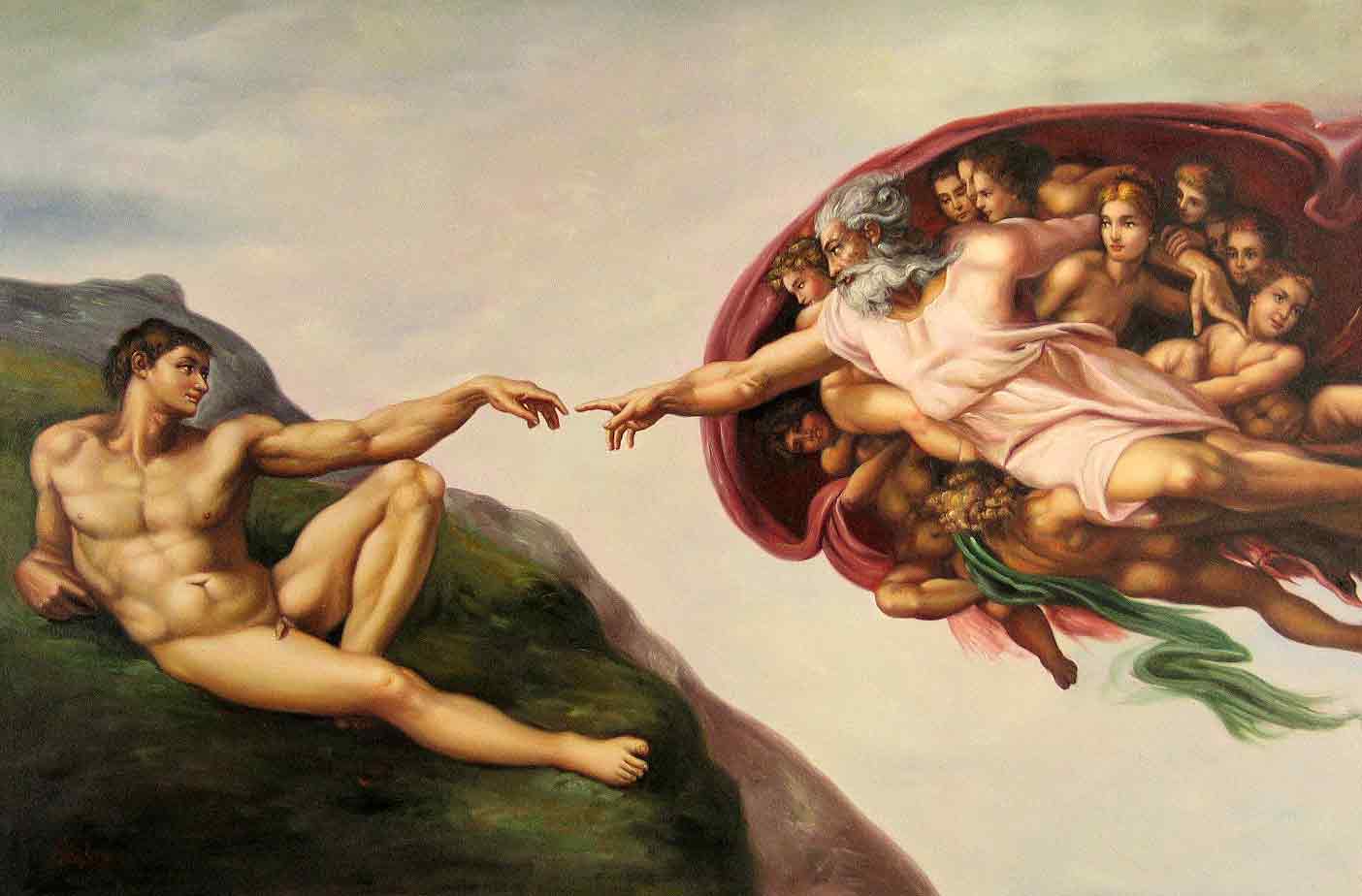Agency is one of the foundational principles of the gospel similar to love, or obedience. Without agency, the
plan of salvation would have no effect. Indeed, it was agency that was the dividing factor between those who chose to follow Satan and those who chose to follow God the Father. And since Satan continually “[seeks] to destroy the agency of man” (
Moses 4:3), a firm understanding of what agency is and what conditions are required for it is critical in understanding the plan of salvation and the purpose of this life.
Satan's War on Free Agency
One of the best books I've ever read on the topic of agency is
Satan’s War on Free Agency by Greg Wright. In this book (also
available from Deseret Book), Greg Wright dissects agency into its fundamental ingredients and clearly distinguishes it from other concepts which are often confused with it.
To anyone who wishes to better understand the principle of agency, I highly recommend this book. The following is a summary of some of the high-level concepts and the scriptural behind the principle of agency discussed in this book.
The Coin
 |
| Choice, freedom, and knowledge are required for agency |
Throughout the book, the author uses a metaphor of choosing a coin from the palm, or palms, from someone's hands to describe the different aspects that make up agency.
Choice = Two or more options
If you place a coin in your hand, close your fist, present it to someone, and ask them to pick a hand, did they really have a choice? This seems a bit retorical, but it forms the basis for agency.
If only one option exists, there is no choice.
Freedom = Choice + different consequences
If you place a coin in each hand, present them
to someone, and ask them to choose, do they have have freedom?
No, because no matter what they choose, the consequence of the choice is always the same (they always get a coin). Furthermore, they are making the choice blindly with no idea of the consequences.
You need different consequences for different choices in order to have freedom.
Agency = Freedom + foreknowledge of the results
If you now place a coin in only one hand, close your fist around it, hold both fists in front of you, explain which hand the coin is in, then have them choose. Do they have agency? Now it seems the ingredients necessary for agency are there. Here we have multiple options, different consequences, and an understanding of the consequences of the different choices are.
Agency requires knowledge of the results of different choices.
So, we have the following distilled equation:
Agency = two ore more options + different consequences from different choices + foreknowledge of the consequences of those choices
Discernment between choice, consequence, and action is fundamental to exercising agency in our lives. It's also important to note how the person choosing must trust you and exercise faith in your telling them which hand the coin is in.
Choice Explained
This above notion of choice is well supported in the scriptures:
- 2 Ne 2:11–12
11. For it must needs be, that there is an opposition in
all things. If not so, my first-born in the wilderness, righteousness
could not be brought to pass, neither wickedness, neither holiness nor
misery, neither good nor bad. Wherefore, all things must needs be a
compound in one; wherefore, if it should be one body it must needs
remain as dead, having no life neither death, nor corruption nor
incorruption, happiness nor misery, neither sense nor insensibility.
12. Wherefore, it must needs have been created for a thing of naught;
wherefore there would have been no purpose in the end of its creation.
Wherefore, this thing must needs destroy the wisdom of God and his
eternal purposes, and also the power, and the mercy, and the justice of
God.
- Alma 30:8
For thus saith the scripture: Choose ye this day, whom ye will serve.
- Helaman 2:27
Wherefore, men are free according to the flesh; and all
things are given them which are expedient unto man. And they are free to
choose liberty and eternal life, through the great Mediator of all men,
or to choose captivity and death, according to the captivity and power
of the devil; for he seeketh that all men might be miserable like unto
himself.
- D&C 37:4
Behold, here is wisdom, and let every man choose for himself until I come. Even so. Amen.
“I don’t have a choice.”
This phrase is often misleading. When we use this phrase we almost
always have a choice. What we most often mean is we can’t control the outcome(s)
(e.g. we don’t have freedom).
One example is someone trapped in a burning building on the 13th
floor with no help in sight. This person may think they don’t have a
choice, but they actually do. They can run into the fire, continue
calling for help, or jump out the window. The problem is that all of
these choices are likely to lead to the same result: death. So when we think this
person has no choice what we actually mean is they have no freedom. It is important to separate our notions of choice and freedom. Claiming we have no choice is debilitating and undermines faith. But always being able to see the different choices available to us is enabling and faith promoting.
Freedom Explained
Freedom, itself, has different dynamics.
No Freedom without Law
- D&C 88:36–38
36. All kingdoms have a law given;
37. And there are many kingdoms; for there is no space in the which
there is no kingdom; and there is no kingdom in which there is no space,
either a greater or a lesser kingdom.
38. And unto every kingdom is given a law; and unto every law there are certain bounds also and conditions.
No Freedom without Consequences
Though this stands to reason simply by virtue of the fact that a law is
not a law unless it is enforced and thus has a consequence, Satan has
repeatedly tried, an succeeded, in telling the lie that either there are
no laws or that their penalties do not exist or matter. The scriptures teach otherwise:
- Alma 42:16–17,27
16. Now, repentance could not come unto men except there
were a punishment, which also was eternal as the life of the soul should
be, affixed opposite to the plan of happiness, which was as eternal
also as the life of the soul.
17. Now, how could a man repent except he should sin? How could he sin
if there was no law? How could there be a law save there was a
punishment?
27. Therefore, O my son, whosoever will come may come and partake of the
waters of life freely; and whosoever will not come the same is not
compelled to come; but in the last day it shall be restored unto him
according to his deeds.
- 2 Ne. 28:8, 22
8 And there shall also be many which shall say: Eat,
drink, and be merry; nevertheless, fear God—he will justify in
committing a little sin; yea, lie a little, take the advantage of one
because of his words, dig a pit for thy neighbor; there is no harm in
this; and do all these things, for tomorrow we die; and if it so be that
we are guilty, God will beat us with a few stripes, and at last we
shall be saved in the kingdom of God.
22. And behold, others he flattereth away, and telleth them there is no
hell; and he saith unto them: I am no devil, for there is none—and
thus he whispereth in their ears, until he grasps them with his awful
chains, from whence there is no deliverance.
- Alma 1:3–4
3. And he had gone about among the people, preaching to
them that which he termed to be the word of God, bearing down against
the church; declaring unto the people that every priest and teacher
ought to become popular; and they ought not to labor with their hands,
but that they ought to be supported by the people.
4. And he also testified unto the people that all mankind should be
saved at the last day, and that they need not fear nor tremble, but that
they might lift up their heads and rejoice; for the Lord had created
all men, and had also redeemed all men; and, in the end, all men should
have eternal life.
No Freedom without the Atonement
Since freedom requires different results it is important to realize that
without the Atonement, the outcome of all of our lives would be the
same. Thus it is Christ who makes us free:
- 2 Ne. 2:26–27
26. And the Messiah cometh in the fulness of time, that
he may redeem the children of men from the fall. And because that they
are redeemed from the fall they have become free forever, knowing good
from evil; to act for themselves and not to be acted upon, save it be by
the punishment of the law at the great and last day, according to the
commandments which God hath given.
27. Wherefore, men are free according to the flesh; and all things are
given them which are expedient unto man. And they are free to choose
liberty and eternal life, through the great Mediator of all men, or to
choose captivity and death, according to the captivity and power of the
devil; for he seeketh that all men might be miserable like unto himself.
- 2 Ne. 9:7,10
7. Wherefore, it must needs be an infinite
atonement—save it should be an infinite atonement this corruption
could not put on incorruption. Wherefore, the first judgment which came
upon man must needs have remained to an endless duration. And if so,
this flesh must have laid down to rot and to crumble to its mother
earth, to rise no more.
10. O how great the goodness of our God, who prepareth a way for our
escape from the grasp of this awful monster; yea, that monster, death
and hell, which I call the death of the body, and also the death of the
spirit.
- Mosiah 5:3
And under this head ye are made free, and there is no
other head whereby ye can be made free. There is no other name given
whereby salvation cometh; therefore, I would that ye should take upon
you the name of Christ, all you that have entered into the covenant with
God that ye should be obedient unto the end of your lives.
Agency Explained
Agency has different dynamics within it as well:
No agency without knowledge
- Moses 7:32
The Lord said unto Enoch: Behold these thy brethren; they
are the workmanship of mine own hands, and I gave unto them their
knowledge, in the day I created them; and in the Garden of Eden, gave I
unto man his agency;
- 2 Ne. 2:5
And men are instructed sufficiently that they know good
from evil. And the law is given unto men. And by the law no flesh is
justified; or, by the law men are cut off. Yea, by the temporal law they
were cut off; and also, by the spiritual law they perish from that
which is good, and become miserable forever.
Agency requires stewardship
Any definition of the word stewardship as it is used generally
emphasizes things like duty, obligation, responsibility, etc. Christ
used the concept of stewardship throughout His parables (
Matt. 20:8;
Luke 12:34;
Luke 16:1–2). In modern days, Christ has reiterated the principle of stewardship as it pertains to our agency:
- D&C 70:3–4, 9–11
3. I, the Lord, have appointed them, and ordained them to
be stewards over the revelations and commandments which I have given
unto them, and which I shall hereafter give unto them;
4. And an account of this stewardship will I require of them in the day of judgment.
9. Behold, this is what the Lord requires of every man in his
stewardship, even as I, the Lord, have appointed or shall hereafter
appoint unto any man.
10. And behold, none are exempt from this law who belong to the church of the living God;
- D&C 51:19
And whoso is found a faithful, a just, and a wise steward shall enter into the joy of his Lord, and shall inherit eternal life.
- D&C 72:3–4
3. And verily in this thing ye have done wisely, for it
is required of the Lord, at the hand of every steward, to render an
account of his stewardship, both in time and in eternity.
4. For he who is faithful and wise in time is accounted worthy to inherit the mansions prepared for him of my Father.
Agency leads to Accountability
As responsibility is a crucial part of stewardship, agency naturally leads to accountability
- D&C 104:11–13, 17
11. It is wisdom in me; therefore, a commandment I give
unto you, that ye shall organize yourselves and appoint every man his
stewardship;
12. That every man may give an account unto me of the stewardship which is appointed unto him.
13. For it is expedient that I, the Lord, should make every man
accountable, as a steward over earthly blessings, which I have made and
prepared for my creatures.
17. For the earth is full, and there is enough and to spare; yea, I
prepared all things, and have given unto the children of men to be
agents unto themselves.
- Helaman 14:30
30. And now remember, remember, my brethren, that
whosoever perisheth, perisheth unto himself; and whosoever doeth
iniquity, doeth it unto himself; for behold, ye are free; ye are
permitted to act for yourselves; for behold, God hath given unto you a
knowledge and he hath made you free.
- D&C 101:78
That every man may act in doctrine and principle
pertaining to futurity, according to the moral agency which I have given
unto him, that every man may be accountable for his own sins in the day
of judgment.
Modern Day Prophets and Leaders on Agency
The principle that agency requires choice, freedom, and accountability
has been repeated by modern day prophets and leaders as well.
- Elder Bruce R. McConkie:
All of the terms and conditions of the Lord’s eternal
plan operate because man has his agency, and none of it would have
efficacy, virtue, or force if there were no agency. Agency requires
opposites; agency demands freedom of choice; agency decrees personal
accountability for sin.
A new Witness for the Articles of Faith, 1985
- Elder Dennis B. Neuenschwander of the Quorum of the Seventy:
What is the agency of man but the right to make choices
within a framework of opposition and the assumption of responsibility
for those choices?
The Path of Growth, Ensign Dec. 1999
Satan Seeks to Destroy Agency
Often when it is discussed how Satan “[seeks] to destroy the agency of man” (
Moses 4:3)
the first, and sometimes only, response is that he wanted to force us
to be good. Having a more intricate understanding of agency helps us
see that forcing us is only one way Satan can destroy agency. To
destroy agency, Satan would have to do any combination of the following:
- Force us to choose good by taking away choice (no options)
- Remove consequence from action (options but not different results)
- Remove accountability or responsibility for our actions (options and different results but no accountability)
It is interesting to see at what degrees Satan uses these different
tactics. Personally, it seems to me that his most popular and enticing
tactic would be the second or third one. How often do we see people,
including ourselves, seeking to avoid responsibility for or the
consequences of their actions?
Elder Dennis B. Neuenschwander of the Quorum of the Seventy explained:
What is the agency of man but the right to make choices
within a framework of opposition and the assumption of responsibility
for those choices?
The Path of Growth, Ensign Dec. 1999
Also, in the 1999 Old Testiment Seminary Manual it states:
Most people thing that he [Satan] would have forced us to
do right, but that is only one possibility. Certain conditions are
necessary if we are to have agency…Satan might have destroyed our agency
by eliminating any one of those [conitions] and he is still trying to
destroy our agency using the same techniques of deception and lies.
1999 CES Teacher Resource Manual
By understanding the agency we have been bestowed by God, we can
better understand how to be good stewards of that gift as we overcome
the lies and deceptions Satan would have use believe concerning it.
25 And, behold, a certain lawyer stood up, and tempted him, saying, Master, what shall I do to inherit eternal life?












